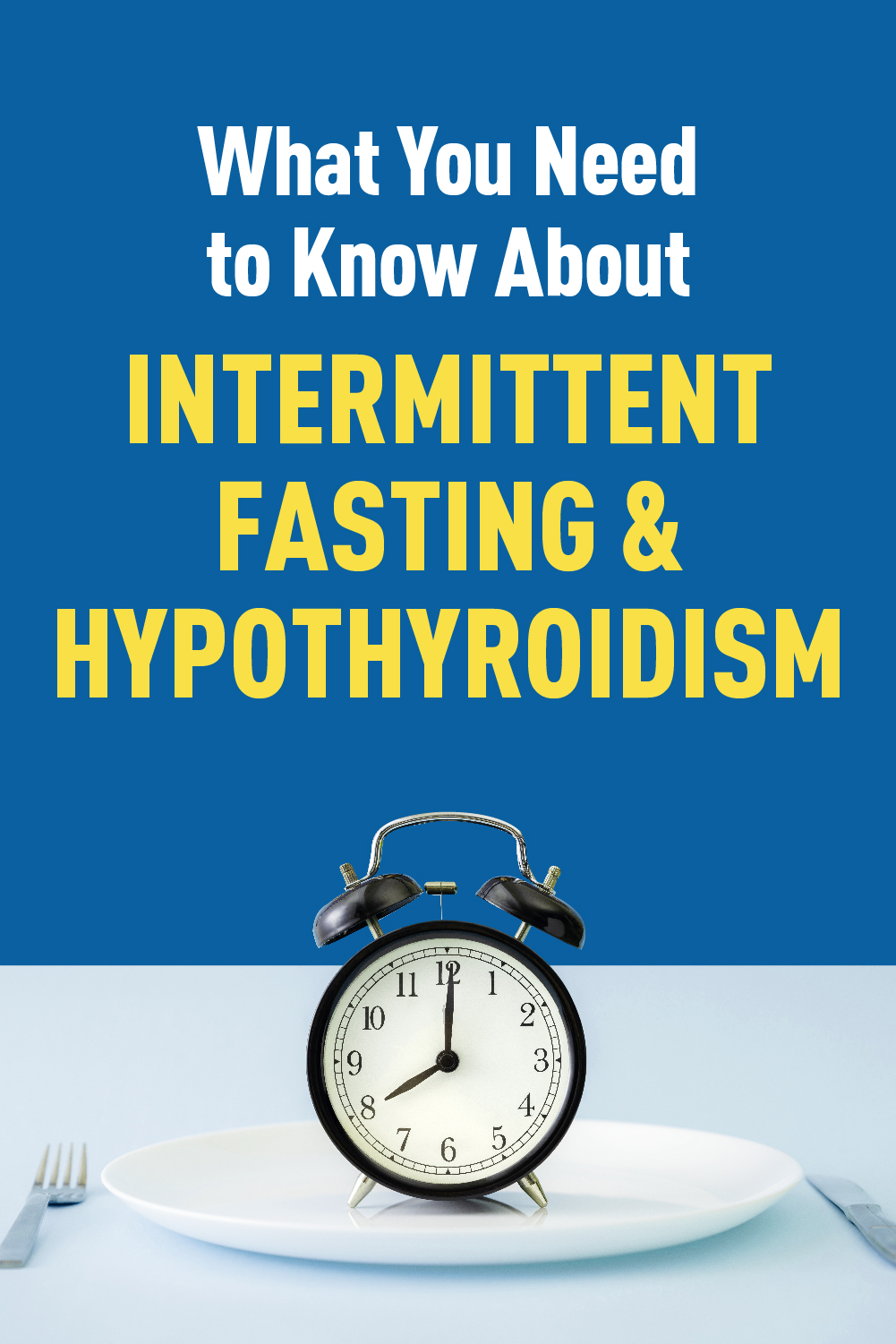Expert Advice

Acella Pharmaceuticals, LLC., is partnering with Nicole German Morgan, RDN, LD, CLT to bring greater awareness to the importance of thyroid care and education. This post is sponsored by Acella Pharmaceuticals and should not be construed as medical advice. Please talk to your doctor about your individual medical situation.
Disclaimer: The information provided is for educational purposes only and does not substitute professional medical advice. Consult a medical professional or healthcare provider before beginning any exercise, fitness, diet, or nutrition routine.
Intermittent fasting refers to a range of meal-timing schedules that cycle between periods of fasting (or reducing calorie intake) and non-fasting over a set period. This strategy to help with weight management has been gaining popularity.
The Most Common Type of Intermittent Fasting
When someone says they are intermittent fasting, they may be referring to the most common eating strategy of eating only during an eight-hour window in a 16-hour period. There are variations of this schedule, but this is the most typical when referring to intermittent fasting. It is important to remember there is no specific definition for the hours of intermittent fasting. Other forms of fasting include choosing one or two days per week to significantly reduce calorie intake, sometimes known as the 5:2 method.
Does Intermittent Fasting Support Weight Loss?
The answer is a complicated one. When intermittent fasting is the only option a person can use, research shows that intermittent fasting does support a small amount of weight loss (around 15 pounds cited in a meta analysis).1 However, there was no statistical difference in weight loss compared to regular calorie restriction with no fasting windows.1 So it appears no matter the method, the calorie deficit is of greatest importance when it comes to weight loss. However, there are specific situations unique to the individual, such as hypothyroidism and insulin resistance, that would likely do better with a more strategic approach.
For example, a review of various research does show that intermittent fasting of all types supports lower fasting blood glucose and improved insulin sensitivity.2 Improved blood sugar control often better supports weight loss.
Alternatively, if you are looking to improve your exercise goals, you may not want to consider intermittent fasting. Research indicates that intermittent fasting shows no improvement in athletic performance.3 So what are we to do in the case of hypothyroidism?
A Happy Balance to Support Thyroid Hormones
Did you know you can fast overnight with a shorter window of 12 hours to 14 hours and still see a health benefit? After only 12 hours, lipolysis (breaking down of fat) begins!2 This will likely suit a person with hypothyroidism much better as it will minimize any stress or starvation response.
This method is called “time-restricted feeding," and research has begun to hypothesize this may be a better balance to support overall health.4 This model creates a routine that limits late-night eating and is mindful of timing, and planning daytime meals. Many find that the "time-restricted feeding" is also easier to follow and maintain. Therefore, it may be more successful for most looking to lose weight – a happy balance.
It may be wise to look at your goals and consider exercise performance, thyroid hormone support, weight loss and blood sugar control. Do you have any specific goals in mind for those? Adjust your eating schedule according to your goals, and consider meeting with a registered dietitian to create an eating and timing plan to better suit your unique needs.

REFERENCES: 1. Harris L, Hamilton S, Azevedo LB, et al. Intermittent fasting interventions for treatment of overweight and obesity in adults: a systematic review and meta-analysis. JBI Evidence Synthesis. 2018;16(2):507-547. doi:10.11124/JBISRIR-2016-003248. 2. Cho Y, Hong N, Kim K won, et al. The Effectiveness of Intermittent Fasting to Reduce Body Mass Index and Glucose Metabolism: A Systematic Review and Meta-Analysis. Journal of Clinical Medicine. 2019;8(10):1645. doi:10.3390/jcm8101645. 3. Levy E, Chu T. Intermittent Fasting and Its Effects on Athletic Performance: A Review. Current Sports Medicine Reports. 2019;18(7):266-269. doi:10.1249/JSR.0000000000000614. 4. Grosso G. Intermittent fasting: promising premises or broken promises? International Journal of Food Sciences and Nutrition. 2021;72(6):721-722. doi:10.1080/09637486.2021.1967301
2309-v1
Note that DTE products, including NP Thyroid®, have not been reviewed by the FDA for safety or efficacy.
IMPORTANT RISK INFORMATION, INCLUDING BOXED WARNING & INDICATIONS
Important Risk Information
Drugs with thyroid hormone activity, alone or together with other therapeutic agents, have been used for the treatment of obesity. In euthyroid patients, doses within the range of daily hormonal requirements are ineffective for weight reduction. Larger doses may produce serious or even life-threatening manifestations of toxicity, particularly when given in association with sympathomimetic amines such as those used for their anorectic effects.
- NP Thyroid® is contraindicated in patients with uncorrected adrenal insufficiency, untreated thyrotoxicosis, and hypersensitivity to any component of the product.
- In the elderly and in patients with cardiovascular disease, NP Thyroid® should be used with greater caution than younger patients or those without cardiovascular disease.
- Use of NP Thyroid® in patients with diabetes mellitus or adrenal cortical insufficiency may worsen the intensity of their symptoms.
- The therapy of myxedema coma requires simultaneous administration of glucocorticoids.
- Concomitant use of NP Thyroid® with oral anticoagulants alters the sensitivity of oral anticoagulants. Prothrombin time should be closely monitored in thyroid-treated patients on oral anticoagulants.
- In infants, excessive doses of NP Thyroid® may produce craniosynostosis.
- Partial loss of hair may be experienced by children in the first few months of therapy but is usually transient.
- Adverse reactions associated with NP Thyroid® therapy are primarily those of hyperthyroidism due to therapeutic overdosage.
- Many drugs and some laboratory tests may alter the therapeutic response to NP Thyroid ®. In addition, thyroid hormones and thyroid status have varied effects on the pharmacokinetics and actions of other drugs. Administer at least 4 hours before or after drugs that are known to interfere with absorption. Evaluate the need for dose adjustments when regularly administering within one hour of certain foods that may affect absorption.
- NP Thyroid® should not be discontinued during pregnancy, and hypothyroidism diagnosed during pregnancy should be promptly treated.
Indications
NP Thyroid® (thyroid tablets, USP) is a prescription medicine that is used to treat a condition called hypothyroidism from any cause, except for cases of temporary hypothyroidism, which is usually associated with an inflammation of the thyroid (thyroiditis). It is meant to replace or supplement a hormone that is usually made by your thyroid gland.
NP Thyroid® is also used in the treatment and prevention of normal functioning thyroid goiters, such as thyroid nodules, Hashimoto’s thyroiditis, multinodular goiter, and in the management of thyroid cancer.
Revised
10/2023
You Are About To Leave This Website
By clicking continue, this link will take you to a website to which Alora Pharmaceuticals’ Policies & Terms of Use do not apply.
^Based on prescriptions filled, NP Thyroid® is the #1 Prescribed DTE in the United States. Source: IQVIA National Prescription Audit (NPA) data on file. Acella Pharmaceuticals, LLC.
